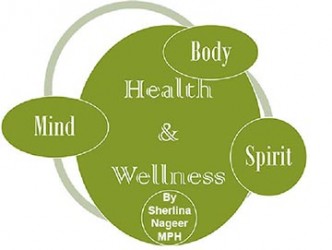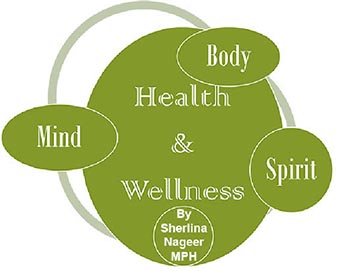Healthy Eating (Part 1)
A lot of people right now are worried about Chikungunya- the mosquito-borne viral illness that causes fever, rashes, and joint pain. Many people are also worrying about Ebola- another viral and highly lethal disease spreading throughout West Africa. While illnesses such as these are significant, the reality is that there are far greater threats to human health and well-being than Chikungunya and Ebola. One of the biggest threats to our health right now is actually something that we willingly expose ourselves to on a daily basis- unhealthy food.
Food is a part of our daily life, an integral part of our culture and celebrations; it’s something we simply cannot live without. But in many instances it’s also a key contributor to disease. In fact, food-related illnesses kill and sicken far more people annually around the world than diseases like Chikungunya or Ebola. However, too many of us do not give the same amount of attention to food in relation to our health, and too many people wait until they get sick before they start caring about their diet.
Food has profound influences on our health and well-being, in both the long and short term. It affects our brains and emotional state as well as our physical bodies. The diets of children, in particular, should be carefully monitored to ensure that they receive the correct nutrients for their developmental needs. While it’s good to adopt healthier eating habits at any time, doing so consistently, from an early age, is key to disease prevention.

First- the less processed food is, the healthier it generally is. Of course, some food items- meat for example- must be cooked in order to kill dangerous bacteria, and the nutrients in some foods are enhanced with processing. Overall however, the closer food is to its natural state, the more nutritious it is. Overly-processed food and items that contain a lot of artificial flavours, preservatives, and chemicals are to be avoided as many of these artificial additives can be carcinogenic and harmful if regularly consumed.
Do not assume that just because something is commonly used or being sold in the market that it is safe or healthy. A lot of items that are produced and sold can cause serious health problems when over-consumed or eaten on a regular basis. Pay attention to labels on food items- even if it’s something you regularly use and think you know all about- it’s still a good idea to become familiar with the ingredients.
If there are multiple ingredients and any of them sound as if they were created in a laboratory instead of by Mother Nature, it’s best to reduce your consumption of this item. In general, it’s best to stick to eating things that your grandmother would recognize.
However, just because we’ve grown up eating something and some particular foods may be deemed representative of our culture does not mean that they are to be embraced blindly. Caring to eat healthier means being open to change. While granny does often know better, she can also be encouraging unhealthy habits. For example- one of the most common cooking methods here in Guyana (and around the world) – frying- is extremely unhealthy. Most fried foods have high levels of saturated fat and eating such foods too often can raise cholesterol levels and contribute to heart disease. As such, the recent proliferation of fried chicken franchises in Georgetown and other towns around Guyana, is extremely worrisome. While fried foods stimulate our taste buds and these fried chicken restaurants might be popular, they are ultimately putting nails in our coffins, contributing to high levels of obesity and heart disease. The first step to a healthier diet therefore, is to reduce both the amount of fried food eaten, as well as the amount of meat and dairy products consumed.
It has been proven that one does not need to eat meat or dairy in order to survive and that long and healthy lives can be had on a completely vegetarian diet. However, even if one is not willing to give up meat or dairy completely, just reducing regular consumption of these items and eating more fresh fruits and vegetables daily can significantly improve one’s health and reduce the risk of illnesses such as cancer and heart disease. A recent study done by researchers at the Harvard School of Public Health found that each additional serving of red meat eaten per day was linked to a 13% higher risk of dying during the study. Processed red meat products- such as sausages and hot dogs- appeared to be even more dangerous with each additional daily serving being associated with a 20% higher risk of dying.
Many food items that are cheap- such as the processed meat products mentioned above (hot dogs and sausages) are staples in many Guyanese people’s diets simply because they are affordable.
When incomes are small and the mouths to feed many, it is understandable that price becomes one of the main factors influencing what foods we buy. However, although we might save money in the short term, we often end up sabotaging our health in the longer term as cheap food items are often poorer in quality and worse for our health. It *is* possible however, to eat healthily on a limited budget, and I will explore this topic in more detail in another column.
Sherlina may be contacted with comments and/or questions at ssnageer@yahoo.com.





